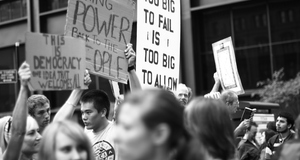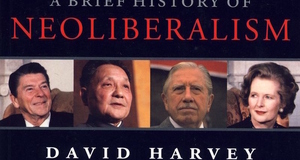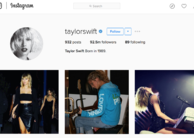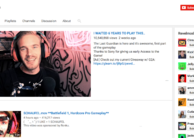|
Media Discourse During the Financial Crisis: An Inquiry into the Nature of the Contemporary "Fourth Estate"
The concept of a “fourth estate” was first articulated by John Declare, editor of The Times in an article published in 1853. He believed the press had a crucial role to play in British society’s transformation into a representative liberal democracy by holding the state to account and by “seek[ing] out the truth, above all things.” This basic premise has been developed by liberal democracy theorists like Noberto Bobbio who have defined the modern media’s pivotal role in a functioning, inclusive democracy. Today, the media’s role in a democratic society is to provide accurate information to educate its citizenry; provide a public platform for rational critical debate; act as a watchdog over the democratic process by holding those in power to account; and finally, offer a pluralistic voice for a range of political opinions.
However idealistic these expectations may be, the contemporary media in modern liberal democracies are still equated as an “estate,” an integral part of the governing process charged with acting as a watchdog over the other institutions of government. Our media is also unique from other branches of government as it is accountable to none, practices freedom of speech, and conducts its affairs autonomously. Declare’s “fourth estate” is today regarded as a sacred institution, a pillar of democracy, protecting and serving the citizens of free societies.
Over the last three decades growing concern has been voiced regarding the changing nature of our “fourth estate.” Critical commentators on the left claim since the 1980s a political economic culture collectively branded “Neoliberalism” has altered the nature of modern media and distorted its output, essential to the functioning of liberal democracies.
These academics, from the political economy of communication, have become increasingly concerned about the emergence of global media oligopolies whom they claim have transformed a sacred institution into a highly profitable business, representing the commercial interests of owners and advertisers as opposed to the citizens of liberal democracies. This research concerns itself with this accusation and questions whether John Declares “fourth estate” has in fact become a pillar of capitalism as opposed to democracy.
“The sinister fact about literary censorship in England is that it is largely voluntary. Unpopular ideas can be silenced, and inconvenient facts kept dark, without the need for any official ban…So far as daily newspapers go, this is easy to understand. The British press is extremely centralised, and most of it is owned by wealthy men who have every motive to be dishonest on certain important topics. But the same kind of veiled censorship also operates in books and periodicals, as well as in plays, films and radio. At any given moment there is an orthodoxy, a body of ideas which it assumes all right-thinking people will accept without question.”[1] - George Orwell, Preface to Animal Farm
What George Orwell is alluding to in his ironically censored preface to Animal Farm is an inability of the media to live up to democratic societies’ somewhat idealistic expectations of the institution. His profound observations of an inherent mobilisation of bias, where unpopular views are suppressed by those with a vested interest in a prevailing orthodoxy, creates a big problem for democratic theorists as it violates some of the fundamental principles underpinning liberal democracies.
Through a combination of rapid technological development and “Neoliberal” deregulation of ownership and markets in the 1980s, the nature of our watchdog would now be unrecognisable to Orwell. Before this period media companies were generally national enterprises which were domestically owned and funded: by 2005, through mergers and acquisitions facilitated by “Neoliberal” deregulation policies, ten media corporations have now formed a global oligopoly, controlling 80% of market share and accounting for some of the biggest corporations on the planet.
Seven of the ten are listed in Fortune Magazine’s global 500. This recent mutation of the fourth estate has raised concerns about the ability of massive corporations to serve the public interest instead of their own. Critics of these conglomerates claim they violate fundamental principles of a free press as due to their ownership and revenue streams, predominantly shareholders and advertisers, their primary interest is profit maximisation as opposed upholding democratic ideals.
Critics of this new media environment claim that due to the nature of these conglomerates, which thrive in unregulated markets where they can grow and maximise profits, these companies are politically conservative and actively promote a neoliberal ontology which creates the most favourable conditions for their organisations to prosper. Indeed Orwell’s prescient criticism of press freedom, where unpopular ideas are censored from our discourse if they do not conform with the orthodoxy of the day, appears far more applicable to our contemporary forth estate. This is our problem.
The aim of my research is to investigate this critique: that our contemporary media, a commercially distorted fourth estate representing its own narrow business interests instead of the public good, actively supports a neoliberal agenda by suppressing any critical discourse of the free-market economic orthodoxy. This research will predominantly follow a post positivist logic, where I am aware my observations and indeed research are founded upon my own values, and my interpretations could be contested by alternative ontological approaches. Although throughout my research I have been aware of my own partiality and strived to be as scientific as possible, to quote Yosef Lapid, my objectivity “is of only limited utility in scientific evaluative appraisal.”
Such a thesis will be explored at a critical juncture in financial history: the 2008 Global Financial Crisis. This unique moment in history witnessed the near collapse of the western banking system and unprecedented state intervention to revive what appeared be a failing global economic system, collectively known as “neoliberalism.” Indeed at the time, many scholars believed these events marked a terminal phase for neoliberalism, where the ideology’s unchallenged dominance in economics, politics and indeed, discourse, had come to an end. Equated by many contemporary economists to the fall of the Berlin Wall, many believed the crisis had heralded an epochal moment in history, where western society was entering a “post-neoliberal” phase of economic development.
These views represent not only elite academic opinion but where widely circulated in public discourse. In an almost surreal parody of the neoliberal project the Washington Consensus was saved by Keynesian reflation and effective nationalisation of the banking system; yet writing almost six years on after two harsh recessions in the UK and record post war unemployment throughout Europe, nothing seems to have changed. It seems now that we had merely entered a “post-neoliberal moment” in the history of capitalism and within a year, neoliberalism appeared to have not only consolidated its place as the only legitimate ideology, but became even more pronounced. The events of 2008-2009 therefore make one pose the fundamental question: How did this occur?
As many academics note the periodization of any historical event can be problematic, and the period under examination would have been extended if unrestricted by time and resources. Our main study will examine a year in media discourse at the height of the financial crisis between October 2008 and September 2009. Three weeks of Newspaper discourse throughout the year will be examined. Each week covers critical junctures in our crisis offering a snapshot of media opinion, a discursive window into the crisis, and allows us to observe how the discourse evolved throughout the year. The weeks under examination follow the three major crisis meetings held by the group of advanced economic nations (G7 and G20) who were attempting to co-ordinate a rescue of the global financial system:
- Time Period 1: Wednesday 8th October to Wednesday 15th October 2008 (excluding Sunday edition). This is the most eventful week of the crisis which witnessed unprecedented state intervention to stave of economic collapse. Major events this week include the steepest decline of the FTSE 100 index in 20 years; the worst week on record for the Dow Jones; and two UK Banking institutions: the Royal Bank of Scotland (RBS) and Halifax Bank of Scotland (HBOS) experiencing a bank run wiping 40% off their stock value in one day. By the end of our week there had been an emergency G7 summit, 8 central banks had dropped their interest rates by 0.5% and, after the government announced a £500billion bailout package, three major banking institutions were effectively nationalised (Lloyds TSB and HBOS 40%; and RBS 60%).
- Time Period 2: Monday 30th March to Monday 6th April 2009 (excluding Sunday edition). This week witnessed the next phase of state intervention designed to rescue the global economy with a second G20 summit being held in London, where Prime Minister Gordon Brown announced an end to the Washington Consensus. But in reality, only agreed in principle for more regulation of the global financial system.
- Time Period 3: Monday 21st September – Monday 28th September 2009 (excluding Sunday edition). Our final week is a busy one, witnessing a multitude of international summits and domestic political conferences. The G20 meets again in Pittsburgh for a follow up to the London Summit. The UN also hosts a climate change summit, a General Assembly, and a Security Council meeting on nuclear disarmament. In the UK, the Liberal Democrat conference is also taking place in Bournemouth with the Labour Conference beginning the following week.
These weeks have been selected for a variety of reasons: Chronologically they represent a year in media discourse, allowing our study to identify, follow and observe any significant discursive developments throughout the year. Alongside witnessing the international crisis summits they are very eventful weeks, which, should provide the most fruitful economic discussion and we assume, criticism of the current system. These weeks therefore present the best opportunity for us to evaluate the performance of the fourth estate as a platform for rational critical debate.
Throughout this time period I analysed the discourse of three UK Newspapers, two broadsheets, The Times and The Guardian, and one tabloid, The Sun. I chose these publications as the subject of my analysis because they represent a broad range of often competing political viewpoints and together represent the widest circulation throughout the country.
The discourse provided in the broadsheets will provide the main subject of analysis. Throughout my three weeks of study I analysed the editorials and opinion pieces of all three publications, I chose these sections as they offer opinion as opposed to direct reporting, and crucially, provide an example of elite views designed to influence wider public opinion at large. This study will therefore interpret the views articulated in the publications as the engine driving public discourse throughout our time period.
The Newspapers were selected primarily because of their ownership type, and political values. A single shareholder, The Scott Trust, established in 1936, “to safeguard the journalistic freedom and liberal values of the Guardian,” owns the Guardian. Operated as a trust all profits are reinvested into the company to provide content free from political or commercial interference. It should be noted that this is somewhat idealistic as although capital contributors possess less influence, this set up does not liberate the publication from financial pressures experienced by any other business. Moreover, the publications commitment to “liberal values” reminds us that not for profit organisations also possess their own bias.
The Times was selected as the second source of elite opinion due to its contrasting ownership and business model. The Times is owned by News Corporation, which in 2005, was rated the fourth biggest Media Corporation on the planet. Although a publicly traded company, Rupert Murdoch owns a controlling stake, while like most media corporations, the next sizeable shareholder is an asset management company. The Times is traditionally the Broadsheet representative of conservative opinion in the UK, combined with News Corporations massive commercial interests it should provide us with a contrasting political viewpoint from the Guardian.
The Sun is the only tabloid newspaper represented in the study. I included it for a variety of reasons, primarily due to its monthly circulation of 16,986,000, being the widest read Newspaper in the country. Although irreverent and lacking in substance, its editorials which are analysed exercise a high degree of influence over public opinion. Furthermore, it is also owned by News Corporation, therefore the publication will also act as an interesting variable, offering an insight into the degree of ideological uniformity the media conglomerate exercises over its publications.
All of the 492 articles reviewed from this 3 week data sample were accessed from the LexisNexis database.
Frame analysis will be the conceptual tool deployed to extrapolate ideological tones from the Newspapers. Framing is another problematic concept for researchers as no coherent theory exists to guide analysis. In my analysis I have designed a framing method which can identify and follow the contestation of multiple frames throughout the discourse. I will explain in detail this method in Chapter 2 as my frame analysis is deeply imbedded in my theoretical framework. Essentially, frames are deployed to assist journalists in reporting stories. They guide audience interpretation of events through selection and salience, emphasising some information at the expense of others, influencing the way people understand a story. As frames restrict understanding, offering only a limited number of reductive interpretations of what is happening, they wield considerable power over public perception and opinion.
In my inquiry into why neoliberalism managed to reassert itself in the face of adversity I aim to deploy my frame analysis to answer questions like: How has the discourse throughout the year been framed? What is the underlying ideological tone and has this changed throughout the year?
The final chapter of this research will take the form of a short inquiry into the ownership and revenue streams of our two subjects of analysis, the Scott Foundation and News Corporation, in an attempt to review the nature of our contemporary fourth estate. Through this analysis of their business models, coupled with their coverage of the financial crisis, I aim to answer one final question: through their coverage of events, whose interests do the modern media represent?
There have been two studies concerning Media discourse during the financial crises. Ronald Hartz (2012) looks at the different discourse strategies employed by the German press during the financial crisis. Whilst Robert Halsall (2013) compares contrasting discursive models of capitalism (the German coordinated market economy vs UK liberal market economy) in German and UK press coverage during the crisis to analyse how the media tries to legitimise their own domestic economic models. The studies demonstrated how after initial reservations at the height of the crisis, both the UK and German press rallied behind their respective neoliberal economic models and began re-legitimising the political economic doctrine in their discourse. This study, through the examination of UK press coverage during the financial crisis, aims to contribute to such an underdeveloped research area by shedding further light on this apparent propensity for media outlets to support neoliberal economic models.
What is Neoliberalism? An ideology? An economic theory? A political doctrine? The most accurate answer is probably all of the above. Stephanie Mudge comments it is an “oft-invoked but ill –defined” term, Joseph Stiglitz calls it, “that grab-bag of ideas based on the fundamentalist notion that markets are self-correcting, allocate resources efficiently, and serve the public interest well.” As it is clearly not a homogeneous term it is important to clarify my definition of neoliberalism as I posit it is supported by a commercialised fourth estate.
The term stems from a type of 1920s classic liberalism which re-emerged in the 1970s as a critique of Keynesian economics positing the role of the free-market should supersede that of the state wherever possible. To deploy Stephanie Mudge’s interpretation, it stands for the superiority of the free-market, liberalisation, privatisation, deregulation, monetarism, and de-politicisation aimed at minimising the states interference in free-markets and desacralizing state institutions, like education, healthcare and of course the media, which were traditionally protected from market forces. It stands for the primacy of business over the state and free-markets over regulation. Neoliberalism is therefore defined in this research as a political economic doctrine that serves the interests of business, ensuring private interest is not interfered with by incompetent public bureaucracies. This free-market is a better arbiter of a free society than any state, and more sacred than any democratic government.
Unfortunately, given the limitations of my study, the public sphere will be routinely cited yet the implications on it only briefly alluded to as they are far beyond the scope of this work. As posited by Jürgen Habermas in his seminal work, “The Structural Transformation of the Public Sphere: An inquiry into a Category of Bourgeois Society,” the public sphere consists of private individuals within society who form a public, engaging in rational critical debate they shape public opinion. A crucial facilitator of this public opinion is a free press who supply the impartial information crucial for to the effective functioning of the public sphere. Habermas goes on in his work to account for the deterioration of his ideal public sphere which has been distorted by the modern mass media. My research into media bias therefore concerns the health of our contemporary public sphere. However, given the scope of such implications and limitations of this study the public sphere can only be briefly alluded to in my research. This should not negate its significance.Continued on Next Page »
Altheide, David, “Media Hegemony: A Failure of Perspective” (Public Opinion Quarterly, Volume 48, 1984).
Arrow, Kenneth, “Political and Economic Evaluation of Social Effects and Externalities,” in, Margolis, Julius ed, “The Analysis of Public Output” (UMI, 1970).
Bachrach, Peter & Baratz, Morton, “Two Faces of Power” (The American Political Science Review, Volume 56, Issue 4, December 1962).
Bishop, John H & Bishop, Michael M, “An Economic Theory of Academic Engagement Norms: The Struggle for Popularity and Normative Hegemony in Secondary Schools” (CAHRS Working Paper Series, 2007).
Calhoun, Craig, “Habermas and the Public Sphere” (Massachusetts: MIT Press, 1992).
Carragee, Kevin M & Roefs, Wim, “The Neglect of Power in Recent Framing Research,” (Journal of Communication, Issue 54, June 2004).
Chang, Byeng-Hee & Chan-Olmsted, “Relative Constancy of Advertising Spending: A Cross-National Examination of Advertising Expenditures and their Determinants.” (The International Journal for Communication Studies, Volume 67, Issue 4, June 2005).
Declare, John, in Lauw, Eric, “The Media and Political Process” (London: Sage, 2010).
Editorial, “Banking Bail-Out: Bonfire of the Certainties” (The Guardian, 14/10/08, accessed 04/06/14 on LexisNexis database).
Editorial, “Has Capitalism Failed?,” (The Times 14/10/08, accessed 04/06/14, on LexisNexis database).
Editorial, “Liberal Democrats: The Lure of False Friends” (The Guardian, 21/09/09, accessed 04/06/14 on LexisNexis database).
Editorial, “One Week and the World: UN and G20 Meetings” (The Guardian, 21/09/09, accessed 04/06/14 on LexisNexis database).
Elliot, Larry, “Brown won’t save our jobs. But he may save his own: The G20 deal still leaves fundamental problems, despite the PM’s upbeat view – yet any recovery could swing an election” (The Guardian, 03/04/09, accessed 04/06/14 on LexisNexis database).
Entman, Robert, “Framing: Toward Clarification of a Fractured Paradigm” (Journal of Communication, Volume 43, Issue 4, 1993).
Finnemore, Martha & Sikkink Kathryn, “International Norm Dynamics and Political Change” (International Organisation, Volume 52, Number 4, International Organisation at Fifty: Exploration and Contestation in the Study of World Politics, Autumn, 1998).
Flew, Terry and Gilmour, Callum, “A Tale of Two Synergies: An Institutional Analysis of the Expansionary Strategies of News Corporation and AOL – Time Warner” (Presentation Paper, Managing Communication for Diversity, Australia and New Zealand Communications Association Conference, Brisbane, 9-11 July, 2003).
Freedland, Jonathan, “Our leaders are impotent to tame the beast: this crisis is one of democracy: Politicians’ limitations have been laid bare during these tumultuous weeks. If ever they can assert strength, it is now” (The Guardian, 08/10/08, accessed 04/06/14 on LexisNexis database).
Guardian Media Group, “Securing the long-term future of the Guardian,” (Annual Reports and Accounts 2009, accessed on 22/07/2014).
Guardian Media Group, “The Scott Trust is a Unique form of Media Ownership in the UK,” The Scott Trust, (http://www.gmgplc.co.uk/the-scott-trust/, accessed 17/07/14), p.1.
Habermas, Jürgen, “The Structural Transformation of the Public Sphere: An inquiry into a Category of Bourgeois Society” (Massachusetts: MIT Press, 1989).
Halsall, Robert, “Signs of Crisis and Recovery: Geographical Imaginaries in Press Coverage of the Financial Crisis in the UK and German Press 2008-2009” (Culture and Organisation, Volume 19, Issue 5, October 2013).
Hartz, Ronald, “Reclaiming the Truth of the Market in Times of Crisis: Course, Transformation and Strategies of a Liberal Discourse in Germany” (Culture and Organisation, Volume 18, Issue 2, March 2012).
Herman, Edward, & Chomsky, Noam, “Manufacturing Consent: The Political Economy of the Mass Media” (New York: Random House, 1988).
Jenkins, Simon, “The end of capitalism? No, just another burst bubble: Those drooling over the free-markets collapse are wrong: This passing crisis is down to lax regulation and craven ministers.”(The Guardian 15/10/08, accessed 04/06/14 on LexisNexis database).
Lapid, Yosef, “The Third Debate: On the Prospects of International Theory in a Post-Positivist Era,” (International Studies Quarterly, Volume 33, Number 3, Sept 1993).
Lauw, Eric, “The Media and Political Process” (London: Sage, 2010).
Leader’s Statement, “The Pittsburgh Summit,” September 24-25 2009, (https://www.g20.org/sites/default/files/g20_resources/library/Pittsburgh_Declaration_0.pdf, accessed 19/07/2014).
McChesney, Robert, “Global Media, Neoliberalism and Imperialism” (Monthly Review, Volume 52, Issue 10, March 2001).
McChesney, Robert, “Journalism, Democracy,…and Class Struggle” (Monthly Review, Volume 52, Number 6, 2000).
McChesney, Robert, “The Political Economy of Media: Enduring Issues, Emerging Dilemmas” (New York: Monthly Review Press, 2008).
McNair, Brian, “An Introduction to Political Communication” (London: Routledge, 2011).
McKnight, David, “Rupert Murdoch’s News Corporation: A Media Institution with A Mission” (Historical Journal of Film, Radio and Television, Volume 30, Issue 3).
Monbiot, George, “This stock collapse is pretty when compared to the nature crunch: The financial crisis at least affords us an opportunity to now rethink our catastrophic ecological trajectory,” (The Guardian, 14/10/08, accessed on 04/06/14 on LexisNexis database).
Mudge, Stephanie Lee, “What is neo-liberalism?” (Socio-Economic review, Volume 6, Issue 4, August 2008).
National Readership Survey, “Newspapers,” March 2013, (Monthly Circulation), (National Readership Survey, http://www.nrs.co.uk/downloads/padd-files/pdf/padd-apr12_mar13-newspapers.pdf, accessed 31/07/14).
News Corporation, “Annual Report,” (http://investors.newscorp.com/secfiling.cfm?filingID=1193125-13-373501&CIK=1564708 , accessed 07/07/14).
Neumann, Russel, Just, Marion & Crigler, Ann, “Common Knowledge: News and the Construction of Political Meaning” (Chicago: The University of Chicago Press, 1992).
Orwell, George, Appendix I, Orwell’s proposed preface to Animal Farm, “THE FREEDOM OF THE PRESS,” in, “Animal Farm: A Fairy Story,” (New York: Harcourt Brace, 1995), pp. 207-208.
Peck, J, Theodore, N & Brenner, N, “Postneoliberalism and its Malcontents” (Antipode, Volume 41, Number 51, 2009).
Picard, Robert & van Weezel Aldo, “Capital and Control: Consequences of Different Forms of Newspaper Ownership,” (The International Journal on Media Management, Volume 10, Issue 22, 2008).
Picard, Robert, “Commercialism and Newspaper Quality” (Newspaper Research Journal, Volume 25, Number 1, winter, 2004).
Picard, Robert, “Shifts in Newspaper Advertising Expenditures and their Implications for the Future of Newspapers” (Journalism Studies, Volume 9, Issue 5, 2008).
Rojecki, Andrew, “Rhetorical Alchemy: American Exceptionalism and the War on Terror” (Political Communication, Volume 25, Issue 1, 2008).
Stiglitz, Joseph, “The End of Neoliberalism?” (Project Syndicate, 2008, http://www.project-syndicate.org/commentary/the-end-of-neo-liberalism- accessed on 20/06/14).
Widmaier, Wesley, Blyth and Seabroke, “Symposium of the Social: Construction of Wars and Crises as Openings for Change: Exogenous Shocks or Endogenous Constructions? The Meanings of Wars and Crises” (International Studies Quarterly Volume 51, Number 4, December 2007).
Winseck, Dwayne, “The State of Media Ownership and Media Markets: Competition or Concentration and Why Should We Care?” (Sociology Compass, Volume 2, Issue 1, January 2008).
Data Sample
492 Newspaper Articles. All articles accessed from LexisNexis database 04/06/14
Week 1: 08/10/2008 – 15/10/2008
- 176 Editorial & Opinion Articles; 76 Frames
- The Guardian: 73 Articles; 38 Frames
- The Times: 76 Articles; 25 Frames
- The Sun: 27 Articles; 13 Frames
Week 2: 30/03/2009 – 06/04/2009
- 146 Editorial & Opinion Articles; 30 Frames
- The Guardian: 68 Articles; 13 Frames
- The Times: 54 Articles; 12 Frames
- The Sun: 24 Articles; 5 Frames
Week 3: 21/09/2009 – 28/09/2009
- 170 Editorials & Opinion Articles; 10 Frames
- The Guardian: 82 Articles; 3 Frames
- The Times: 57 Articles; 7 Frames
- The Sun: 31 Articles; 0 Frames
Endnotes
- Orwell, George, Appendix I, Orwell’s proposed preface to Animal Farm, “THE FREEDOM OF THE PRESS,” in, “Animal Farm: A Fairy Story,” (New York: Harcourt Brace, 1995), pp. 207-208.
- Declare, John, in Lauw, Eric, “The Media and Political Process” (London: Sage, 2010). p.49
- McNair, Brian, “An Introduction to Political Communication” (London: Routledge, 2011). pp.18-20.
- Lauw, Eric, “The Media and Political Process” (London: Sage, 2010). p. 48.
- Ibid.
- McChesney, Robert, “Global Media, Neoliberalism and Imperialism” (Monthly Review, Volume 52, Issue 10, March 2001), p.2.
- Winseck, Dwayne, “The State of Media Ownership and Media Markets: Competition or Concentration and Why Should We Care?” (Sociology Compass, Volume 2, Issue 1, January 2008), p.37.
- McChesney, Robert, “Global Media, Neoliberalism and Imperialism” (Monthly Review, Volume 52, Issue 10, March 2001), p.12.
- McChesney, Robert, “Journalism, Democracy,…and Class Struggle” (Monthly Review, Volume 52, Number 6, 2000), p.3.
- Lapid, Yosef, “The Third Debate: On the Prospects of International Theory in a Post-Positivist Era,” (International Studies Quarterly, Volume 33, Number 3, Sept 1993), p.240.
- Hartz, Ronald, “Reclaiming the Truth of the Market in Times of Crisis: Course, Transformation and Strategies of a Liberal Discourse in Germany” (Culture and Organisation, Volume 18, Issue 2, March 2012), p.139.
- Halsall, Robert, “Signs of Crisis and Recovery: Geographical Imaginaries in Press Coverage of the Financial Crisis in the UK and German Press 2008-2009” (Culture and Organisation, Volume 19, Issue 5, October 2013), p.377.
- Peck, J, Theodore, N & Brenner, N, “Postneoliberalism and its Malcontents” (Antipode, Volume 41, Number 51, 2009), pp. 99-100.
- Ibid. p.95.
- Ibid. p.100.
- Halsall, Robert, “Signs of Crisis and Recovery: Geographical Imaginaries in Press Coverage of the Financial Crisis in the UK and German Press 2008-2009” (Culture and Organisation, Volume 19, Issue 5, October 2013), p.384.
- Freedland, Jonathan, “Our leaders are impotent to tame the beast: this crisis is one of democracy: Politicians’ limitations have been laid bare during these tumultuous weeks. If ever they can assert strength, it is now” (The Guardian, 08/10/08, accessed 04/06/14 on LexisNexis database), p.29.
- Editorial, “Banking Bail-Out: Bonfire of the Certainties” (The Guardian, 14/10/08, accessed 04/06/14 on LexisNexis database), p.34.
- Elliot, Larry, “Brown won’t save our jobs. But he may save his own: The G20 deal still leaves fundamental problems, despite the PM’s upbeat view – yet any recovery could swing an election” (The Guardian, 03/04/09, accessed 04/06/14 on LexisNexis database), p.39.
- Editorial, “One Week and the World: UN and G20 Meetings” (The Guardian, 21/09/09, accessed 04/06/14 on LexisNexis database), p.32.
- Editorial, “Liberal Democrats: The Lure of False Friends” (The Guardian, 21/09/09, accessed 04/06/14 on LexisNexis database), p.32.
- National Readership Survey, “Newspapers,” March 2013, (Monthly Circulation), The Sun: 16,986,000; The Guardian 12,459,000; The Times 5,402,000. (National Readership Survey, http://www.nrs.co.uk/downloads/padd-files/pdf/padd-apr12_mar13-newspapers.pdf, accessed 31/07/14), p.1.
- Rojecki, Andrew, “Rhetorical Alchemy: American Exceptionalism and the War on Terror” (Political Communication, Volume 25, Issue 1, 2008), p.73.
- “The Scott Trust,” (Guardian Media Group website, http://www.gmgplc.co.uk/the-scott-trust/ accessed 07/07/14), p.1.
- Ibid.
- Picard, Robert & van Weezel Aldo, “Capital and Control: Consequences of Different Forms of Newspaper Ownership,” (The International Journal on Media Management, Volume 10, Issue 22, 2008), pp.23-27.
- News Corporation, “Annual Report,” (http://investors.newscorp.com/secfiling.cfm?filingID=1193125-13-373501&CIK=1564708 , accessed 07/07/14), p.165.
- National Readership Survey, “Newspapers,” March 2013, Monthly Circulation, (National Readership Survey, http://www.nrs.co.uk/downloads/padd-files/pdf/padd-apr12_mar13-newspapers.pdf, accessed 31/07/14), p.1.
- Entman, Robert, “Framing: Toward Clarification of a Fractured Paradigm” (Journal of Communication, Volume 43, Issue 4, 1993), p.51.
- Ibid. p.52.
- Ibid. p.57.
- Hartz, Ronald, “Reclaiming the Truth of the Market in Times of Crisis: Course, Transformation and Strategies of a Liberal Discourse in Germany” (Culture and Organisation, Volume 18, Issue 2, March 2012), pp.139-152.
- Halsall, Robert, “Signs of Crisis and Recovery: Geographical Imaginaries in Press Coverage of the Financial Crisis in the UK and German Press 2008-2009” (Culture and Organisation, Volume 19, Issue 5, October 2013), pp.337-393.
- Peck, J, Theodore, N & Brenner, N, “Postneoliberalism and its Malcontents” (Antipode, Volume 41, Number 51, 2009), p.95.
- Stiglitz, Joseph, “The End of Neoliberalism?” (Project Syndicate, 2008, http://www.project-syndicate.org/commentary/the-end-of-neo-liberalism- accessed on 20/06/14), p.1.
- Peck, J, Theodore, N & Brenner, N, “Postneoliberalism and its Malcontents” (Antipode, Volume 41, Number 51, 2009), pp.96-106.
- Mudge, Stephanie Lee, “What is neo-liberalism?” (Socio-Economic review, Volume 6, Issue 4, August 2008), p.704.
- Habermas, Jurgen, “The Structural Transformation of the Public Sphere: An inquiry into a Category of Bourgeois Society” (MIT Press: Massachusetts, 1989), pp.2-27.
- Ibid. p.60.
- Calhoun, Craig, “Habermas and the Public Sphere” (MIT Press: Massachusetts, 1992), pp.23-28.
- Finnemore, Martha & Sikkink Kathryn, “International Norm Dynamics and Political Change” (International Organisation, Volume 52, Number 4, International Organisation at Fifty: Exploration and Contestation in the Study of World Politics, Autumn, 1998), p.888.
- Ibid. p.891.
- Ibid. p.904.
- Ibid.
- Ibid. p.906.
- Mudge, Stephanie Lee, “What is neo-liberalism?” (Socio-Economic review, Volume 6, Issue 4, August 2008), p.705.
- Bishop, John H & Bishop, Michael M, “An Economic Theory of Academic Engagement Norms: The Struggle for Popularity and Normative Hegemony in Secondary Schools” (CAHRS Working Paper Series, 2007), p.4.
- Ibid.
- Ibid. p.5.
- Ibid.p.4.
- Bachrach, Peter & Baratz, Morton S, “Two Faces of Power” (The American Political Science Review, Volume 56, Issue 4, December 1962), p.949.
- Ibid. p.948.
- Orwell, George, Appendix I, Orwell’s proposed preface to Animal Farm, “THE FREEDOM OF THE PRESS,” in, “Animal Farm: A Fairy Story,” (New York: Harcourt Brace, 1995), pp. 207-208.
- Bachrach, Peter & Baratz, Morton S, “Two Faces of Power” (The American Political Science Review, Volume 56, Issue 4, December 1962), p.952.
- Widmaier, Wesley, Blyth and Seabroke, “Symposium of the Social: Construction of Wars and Crises as Openings for Change: Exogenous Shocks or Endogenous Constructions? The Meanings of Wars and Crises” (International Studies Quarterly Volume 51, Number 4, December 2007), pp.748-753.
- Ibid. p749.
- Ibid.
- Ibid. p.752.
- Rojecki, Andrew, “Rhetorical Alchemy: American Exceptionalism and the War on Terror” (Political Communication, Volume 25, Issue 1, 2008), p.73.
- Finnemore, Martha & Sikkink Kathryn, “International Norm Dynamics and Political Change” (International Organisation, Volume 52, Number 4, International Organisation at Fifty: Exploration and Contestation in the Study of World Politics, Autumn, 1998), p.897.
- Finnemore, Martha & Sikkink Kathryn, “International Norm Dynamics and Political Change” (International Organisation, Volume 52, Number 4, International Organisation at Fifty: Exploration and Contestation in the Study of World Politics, Autumn, 1998), p.896.
- Ibid. p.897.
- Ibid.
- Ibid. p.895
- Ibid. p.
- Entman, Robert, “Framing: Toward Clarification of a Fractured Paradigm” (Journal of Communication, Volume 43, Issue 4, 1993), p. 52.
- Neumann, Russel, Just, Marion & Crigler, Ann, “Common Knowledge: News and the Construction of Political Meaning” (Chicago: The University of Chicago Press, 1992), p.60.
- Entman, Robert, “Framing: Toward Clarification of a Fractured Paradigm” (Journal of Communication, Volume 43, Issue 4, 1993), p.53.
- Ibid. p.52.
- Ibid. p.53.
- Ibid. p.54.
- Ibid.
- Ibid.
- Ibid. p.55.
- Rojecki, Andrew, “Rhetorical Alchemy: American Exceptionalism and the War on Terror” (Political Communication, Volume 25, Issue 1, 2008), p.82.
- Ibid. p.55.
- Carragee, Kevin M & Roefs, Wim, “The Neglect of Power in Recent Framing Research,” (Journal of Communication, Issue 54, June 2004), p.214.
- Ibid. p.221.
- Ibid. p.221.
- Ibid. p.222.
- Altheide, David, “Media Hegemony: A Failure of Perspective” (Public Opinion Quarterly, Volume 48, 1984), p.479.
- Carragee, Kevin M & Roefs, Wim, “The Neglect of Power in Recent Framing Research,” (Journal of Communication, Issue 54, June 2004), p.223.
- Rojecki, Andrew, “Rhetorical Alchemy: American Exceptionalism and the War on Terror” (Political Communication, Volume 25, Issue 1, 2008), p. 73.
- Entman, Robert, “Framing: Toward Clarification of a Fractured Paradigm” (Journal of Communication, Volume 43, Issue 4, 1993), pp.51-57.
- Ibid. p.52.
- Ibid.
- Ibid.
- Rojecki, Andrew, “Rhetorical Alchemy: American Exceptionalism and the War on Terror” (Political Communication, Volume 25, Issue 1, 2008), p.73.
- Entman, Robert, “Framing: Toward Clarification of a Fractured Paradigm” (Journal of Communication, Volume 43, Issue 4, 1993), p.53.
- Finnemore, Martha & Sikkink Kathryn, “International Norm Dynamics and Political Change” (International Organisation, Volume 52, Number 4, International Organisation at Fifty: Exploration and Contestation in the Study of World Politics, Autumn, 1998).pp.888-894.
- Peck, J, Theodore, N & Brenner, N, “Postneoliberalism and its Malcontents” (Antipode, Volume 41, Number 51, 2009). P.103.
- Bachrach, Peter & Baratz, Morton, “Two Faces of Power” (The American Political Science Review, Volume 56, Issue 4, December 1962). pp. 952-949.
- Halsall, Robert, “Signs of Crisis and Recovery: Geographical Imaginaries in Press Coverage of the Financial Crisis in the UK and German Press 2008-2009” (Culture and Organisation, Volume 19, Issue 5, October 2013). P392.
- Hartz, Ronald, “Reclaiming the Truth of the Market in Times of Crisis: Course, Transformation and Strategies of a Liberal Discourse in Germany” (Culture and Organisation, Volume 18, Issue 2, March 2012). P.146.
- Entman, Robert, “Framing: Toward Clarification of a Fractured Paradigm” (Journal of Communication, Volume 43, Issue 4, 1993). P.53.
- Widmaier, Wesley, Blyth and Seabroke, “Symposium of the Social: Construction of Wars and Crises as Openings for Change: Exogenous Shocks or Endogenous Constructions? The Meanings of Wars and Crises” (International Studies Quarterly Volume 51, Number 4, December 2007). p.752.
- Rojecki, Andrew, “Rhetorical Alchemy: American Exceptionalism and the War on Terror” (Political Communication, Volume 25, Issue 1, 2008). p.73.
- Finnemore, Martha & Sikkink Kathryn, “International Norm Dynamics and Political Change” (International Organisation, Volume 52, Number 4, International Organisation at Fifty: Exploration and Contestation in the Study of World Politics, Autumn, 1998). p.896.
- Guardian Media Group, “The Scott Trust is a Unique form of Media Ownership in the UK,” The Scott Trust, (http://www.gmgplc.co.uk/the-scott-trust/, accessed 17/07/14), p.1.
- Editorial, “Banking Bail-Out: Bonfire of the Certainties” (The Guardian, 14/10/08, accessed 04/06/14 on LexisNexis database), p.34.
- Hartz, Ronald, “Reclaiming the Truth of the Market in Times of Crisis: Course, Transformation and Strategies of a Liberal Discourse in Germany” (Culture and Organisation, Volume 18, Issue 2, March 2012), p.139.
- Peck, J, Theodore, N & Brenner, N, “Postneoliberalism and its Malcontents” (Antipode, Volume 41, Number 51, 2009), pp. 99-100.
- Widmaier, Wesley, Blyth and Seabroke, “Symposium of the Social: Construction of Wars and Crises as Openings for Change: Exogenous Shocks or Endogenous Constructions? The Meanings of Wars and Crises” (International Studies Quarterly Volume 51, Number 4, December 2007). Pp753-754.
- Editorial, “Has Capitalism Failed?,” (The Times 14/10/08, accessed 04/06/14, on LexisNexis database), p.2.
- Finnemore, Martha & Sikkink Kathryn, “International Norm Dynamics and Political Change” (International Organisation, Volume 52, Number 4, International Organisation at Fifty: Exploration and Contestation in the Study of World Politics, Autumn, 1998), p. 888.
- Monbiot, George, “This stock collapse is pretty when compared to the nature crunch: The financial crisis at least affords us an opportunity to now rethink our catastrophic ecological trajectory,” (The Guardian, 14/10/08, accessed on 04/06/14 on LexisNexis database), p.31.
- Jenkins, Simon, “The end of capitalism? No, just another burst bubble: Those drooling over the free-markets collapse are wrong: This passing crisis is down to lax regulation and craven ministers.”(The Guardian 15/10/08, accessed 04/06/14 on LexisNexis database), p.29.
- Ibid. p.897.
- Ibid. p. 894.
- Ibid. pp.894-895.
- Elliot, Larry, “Brown won’t save our jobs. But he may save his own: The G20 deal still leaves fundamental problems, despite the PM’s upbeat view – yet any recovery could swing an election” (The Guardian, 03/04/09, accessed 04/06/14 on LexisNexis database), p.1.
- Ibid.
- Finnemore, Martha & Sikkink Kathryn, “International Norm Dynamics and Political Change” (International Organisation, Volume 52, Number 4, International Organisation at Fifty: Exploration and Contestation in the Study of World Politics, Autumn, 1998), p. 902.
- Halsall, Robert, “Signs of Crisis and Recovery: Geographical Imaginaries in Press Coverage of the Financial Crisis in the UK and German Press 2008-2009” (Culture and Organisation, Volume 19, Issue 5, October 2013). pp.337-393.
- Leader’s Statement, “The Pittsburgh Summit,” September 24-25 2009, (https://www.g20.org/sites/default/files/g20_resources/library/Pittsburgh_Declaration_0.pdf, accessed 19/07/2014), p2.
- Editorial, “One Week and the World: UN and G20 Meetings” (The Guardian, 21/09/09, accessed 04/06/14 on LexisNexis database). p.32.
- Editorial, “Liberal Democrats: The Lure of False Friends” (The Guardian, 21/09/09, accessed 04/06/14 on LexisNexis database), p.32.
- Rojecki, Andrew, “Rhetorical Alchemy: American Exceptionalism and the War on Terror” (Political Communication, Volume 25, Issue 1, 2008). P.73.
- Ibid, p.82.
- Ibid, pp.73-83.
- Halsall, Robert, “Signs of Crisis and Recovery: Geographical Imaginaries in Press Coverage of the Financial Crisis in the UK and German Press 2008-2009” (Culture and Organisation, Volume 19, Issue 5, October 2013), pp. 377-393.
- Guardian Media Group, “Securing the long-term future of the Guardian,” (Annual Reports and Accounts 2009, accessed on 22/07/2014), p.1.
- Ibid.
- Picard, Robert & Van Weezel Aldo, “Capital and Control: Consequences of Different Forms of Newspaper Ownership,” (The International Journal of Media Management, Volume 10, Issue 22, 2008), p.27.
- Guardian Media Group, “Securing the long-term future of the Guardian,” (Annual Reports and Accounts 2009, accessed on 22/07/2014), p. 2.
- News Corporation, “Annual Report,” (http://investors.newscorp.com/secfiling.cfm?filingID=1193125-13-373501&CIK=1564708 , accessed 07/07/14),p.167.
- McKnight, David, “Rupert Murdoch’s News Corporation: A Media Institution with A Mission” (Historical Journal of Film, Radio and Television, Volume 30, Issue 3), p.304.
- Picard, Robert & Van Weezel Aldo, “Capital and Control: Consequences of Different Forms of Newspaper Ownership,” (The International Journal of Media Management, Volume 10, Issue 22, 2008), pp.25-26.
- News Corporation, “Annual Report,” (http://investors.newscorp.com/secfiling.cfm?filingID=1193125-13-373501&CIK=1564708 , accessed 07/07/14), p.71.
- Flew, Terry and Gilmour, Callum, “A Tale of Two Synergies: An Institutional Analysis of the Expansionary Strategies of News Corporation and AOL – Time Warner” (Presentation Paper, Managing Communication for Diversity, Australia and New Zealand Communications Association Conference, Brisbane, 9-11 July, 2003), p.12.
- Picard, Robert & Van Weezel Aldo, “Capital and Control: Consequences of Different Forms of Newspaper Ownership,” (The International Journal of Media Management, Volume 10, Issue 22, 2008), p.26.
- Ibid.
- News Corporation, “Annual Report,” (http://investors.newscorp.com/secfiling.cfm?filingID=1193125-13-373501&CIK=1564708 , accessed 07/07/14), p.165.
- Winseck, Dwayne, “The State of Media Ownership and Media Markets: Competition or Concentration and Why Should We Care?” (Sociology Compass, Volume 2, Issue 1, January 2008), p.40.
- Ibid.
- Picard, Robert & Van Weezel Aldo, “Capital and Control: Consequences of Different Forms of Newspaper Ownership,” (The International Journal of Media Management, Volume 10, Issue 22, 2008), p.25.
- Picard, Robert, “Shifts in Newspaper Advertising Expenditures and their Implications for the Future of Newspapers” (Journalism Studies, Volume 9, Issue 5, 2008), p.704.
- Picard, Robert, “Commercialism and Newspaper Quality” (Newspaper Research Journal, Volume 25, Number 1, winter, 2004), p.60.
- McChesney, Robert, “The Political Economy of Media: Enduring Issues, Emerging Dilemmas” (New York: Monthly Review Press, 2008), p.421.
- Picard, Robert, “Commercialism and Newspaper Quality” (Newspaper Research Journal, Volume 25, Number 1, Winter, 2004), p.61.
- Picard, Robert, “Shifts in Newspaper Advertising Expenditures and their Implications for the Future of Newspapers” (Journalism Studies, Volume 9, Issue 5, 2008), p.705.
- Chang, Byeng-Hee & Chan-Olmsted, “Relative Constancy of Advertising Spending: A Cross-National Examination of Advertising Expenditures and their Determinants.” (The International Journal for Communication Studies, Volume 67, Issue 4, June 2005), pp.339-340.
- Picard, Robert, “Commercialism and Newspaper Quality” (Newspaper Research Journal, Volume 25, Number 1, Winter, 2004), p.54.
- McChesney, Robert, “The Political Economy of Media: Enduring Issues, Emerging Dilemmas” (New York: Monthly Review Press, 2008), p422.
- Bachrach, Peter & Baratz, Morton, “Two Faces of Power” (The American Political Science Review, Volume 56, Issue 4, December 1962). p.952.
- Habermas, Jurgen, “The Structural Transformation of the Public Sphere: An inquiry into a Category of Bourgeois Society” (MIT Press: Massachusetts, 1989), p21.
Save Citation » (Works with EndNote, ProCite, & Reference Manager)
APA 6th
Docherty, S. (2015). "Media Discourse During the Financial Crisis: An Inquiry into the Nature of the Contemporary 'Fourth Estate'." Inquiries Journal/Student Pulse, 7(06). Retrieved from http://www.inquiriesjournal.com/a?id=1051
MLA
Docherty, Shaun. "Media Discourse During the Financial Crisis: An Inquiry into the Nature of the Contemporary 'Fourth Estate'." Inquiries Journal/Student Pulse 7.06 (2015). <http://www.inquiriesjournal.com/a?id=1051>
Chicago 16th
Docherty, Shaun. 2015. Media Discourse During the Financial Crisis: An Inquiry into the Nature of the Contemporary 'Fourth Estate'. Inquiries Journal/Student Pulse 7 (06), http://www.inquiriesjournal.com/a?id=1051
Harvard
DOCHERTY, S. 2015. Media Discourse During the Financial Crisis: An Inquiry into the Nature of the Contemporary 'Fourth Estate'. Inquiries Journal/Student Pulse [Online], 7. Available: http://www.inquiriesjournal.com/a?id=1051
Suggested Reading from Inquiries Journal
In 2014, Greenpeace launched an attack on a 50-year brand partnership between Danish toy company LEGO and Royal Dutch Shell, an oil and gas corporation. Through the analysis of Greenpeace's campaign and LEGO's responses over a three-month period, this case study examined how Greenpeace influenced LEGO's communications with its consumers... MORE»
Conceiving neoliberalism as a form of constructivism, an ideological project rather than a doctrine prefigured by ‘human nature’, illuminates a promising path towards countering its impoverishing effect on both the citizen subject and the ethos of democracy. This involves a concerted intervention at the level of discourse... MORE»
Michael Thompson, reviewing A Brief History of Neoliberalism by David Harvey, calls it ‘the world according to David Harvey’ (2005). This is an accurate remark: although erring slightly on the side of conspiracy, the book is a breathtaking overview of the ‘neoliberal world’ through Harvey&rsquo... MORE»
Since the financial crisis of 2007, regulators have recognized the necessity for global governance in an increasingly interconnected global economy. Many have praised the extent to which regulators have already minimized... MORE»
Latest in Business & Communications
2021, Vol. 13 No. 09
This research lies at the nexus of political communication theory relating to emotional affect and political processing and the burgeoning field of sentiment analysis. News coverage can affect opinion both through the information it provides and... Read Article »
2021, Vol. 13 No. 06
This research study explores factors that present barriers to reporting workplace incidents and contribute to cultures of non-report. The research purpose was to explore human, workplace/organizational, and external factors identified by industrial... Read Article »
2016, Vol. 8 No. 11
In its beta release, Google Glass was positioned as a groundbreaking technology - a glimpse into a future that has long been promised in science fiction. It was met with media fanfare and consumer interest, despite costing more than most PCs on... Read Article »
2016, Vol. 7 No. 1
Predicting the future of the news industry begins with understanding the history of newspapers and the current news delivery landscape. Because the Internet has brought fundamental shifts to news distribution, successful organizations of the future... Read Article »
2016, Vol. 7 No. 1
Instagram allows users to share a snapshot of their lives with a mass audience in a matter of seconds. This capability and power has not gone unnoticed by celebrities, who are highly aware of the impact their social media accounts have on fans and... Read Article »
2016, Vol. 7 No. 1
Since its development, YouTube, the world's third most popular online destination, has transformed from a video-sharing site into a job opportunity for content creators in both new and mainstream media. Based on content analysis, the study examined... Read Article »
2016, Vol. 7 No. 1
Today, more than 15 million Americans practice yoga, making the ancient Indian discipline synonymous with the Western society's culture of wellness. As a way to market themselves, practitioners and instructors of yoga have utilized Instagram &ndash... Read Article »
|



















